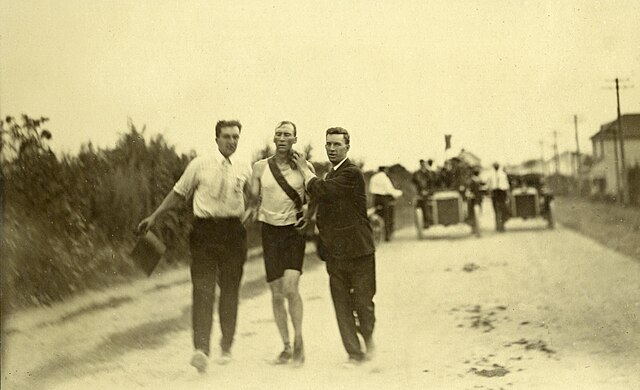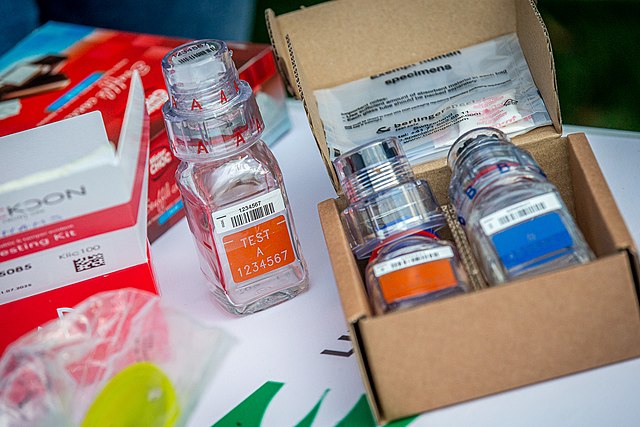Systematic doping of Russian athletes has resulted in 48 Olympic medals stripped from Russia, four times the number of the next highest, and more than 30% of the global total. Russia has the most competitors who have been caught doping at the Olympic Games in the world, with more than 150.
Yuliya Stepanova
Dick Pound led the 2015 WADA investigation and became a vocal critic of the IOC's indecision
Vladimir Putin and Lamine Diack
Headquarters of the Russian Olympic Committee in Moscow
In competitive sports, doping is the use of banned athletic performance-enhancing drugs by athletic competitors, as a way of cheating. As stated in the World Anti-Doping Code by WADA, doping is defined as the occurrence of one or more of the anti-doping rule violations set forth in Article 2.1 through Article 2.11 of the Code. The term doping is widely used by organizations that regulate sporting competitions. The use of drugs to enhance performance is considered unethical, and is prohibited by most international sports organizations, including the International Olympic Committee. Furthermore, athletes taking explicit measures to evade detection exacerbate the ethical violation with overt deception and cheating.
Hicks and supporters at the 1904 Summer Olympics
Ilona Slupianek in 1981.
Controversial athlete Floyd Landis, shown here at the 2006 Tour of California, triggered a public scandal when caught doping to help his cycling.
Urine doping sampling security bottles








